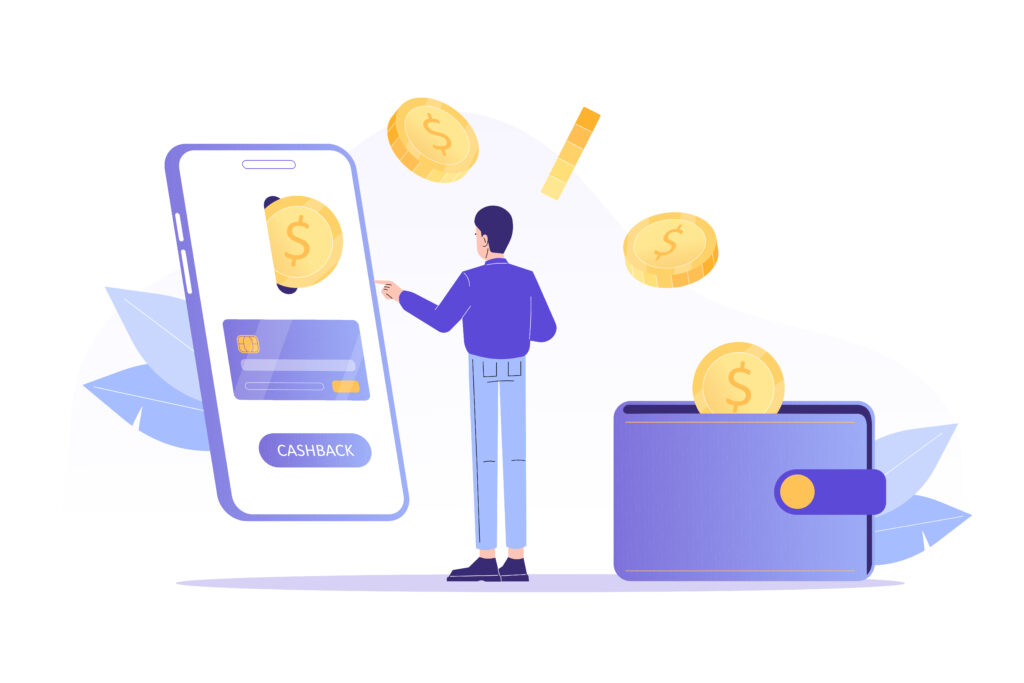
Is mobile wallet safe? Is this something you can use without any issues, or is it a method you should avoid? Another thing that many people are interested in is whether digital wallets are safer than credit cards. And how do these two methods compare when it comes to usability and safety?
There are a few things you will need to know about these processes and how they complement each other. So, let’s start from the beginning.
What Are Digital Wallets?
_________
Digital wallets are designed for keeping digital currencies. In the majority of cases, it refers to various apps that allow you to pay for things online and it usually includes a variety of payment options. This includes both debit and credit cards, as well as bank accounts.
What makes these wallets special is convenience. And while the basic principle is similar to credit cards, there are enough differences to allow them to stand apart. Digital wallets allow you to store payment details electronically, and it allows people to make payments using their smartphones.
The most popular digital wallets are PayPal, CashApp, Apple Pay, Google Pay, WeChat, Samsung Pay, Venmo, and others.
What Is Risky About Using Digital Wallets?
_________
The convenience that comes with digital wallets is something many users appreciate. They already carry their smartphones with them, and it is simpler. Additionally, they don’t need to carry their physical wallets around. But at the same time, using digital wallets is not without risks.
So, are mobile wallets safe? Generally speaking, digital wallets are secure. Whenever you make a transaction, the application (or digital wallet) will create a token with a random identification number. This token will be used instead of your account details.
But at the same time, identity theft can be a real problem. It is also one of the biggest fears for people in the U.S. Furthermore, losing your phone will mean that you lose everything else. And it can be a serious problem. If you don’t have password protection, someone could easily access your funds.
Finally, digital wallets are rarely insured. Bank accounts are under strict federal regulation by FDIC or Federal Deposit Insurance Corp. And it covers up to $250,000 per account. Of course, some apps like CashApp and PayPal follow the same regulations, but this doesn’t apply to every single one of these apps.

Credit Card Security
_________
To have a better understanding of these two methods, it is important to look at the other part of the story – credit cards. Are credit cards secure? The short answer is yes. Credit cards have been around for quite some time, and security has been improving since the beginning. But this doesn’t make them flawless.
Businesses still lose billions of dollars each year due to credit card fraud. Another huge issue with credit cards is what will happen if they get into the wrong hands. In some cases, it is possible to make payments without verification or buy things online using the CVV code on the back.
And even if you contact your bank immediately, you will need to wait a bit until your new credit card is ready.
How Do Digital Wallets Compare to Credit Cards?
_________
Both credit cards and digital wallets have their purposes. And when it comes to security, both come with pros and cons. Furthermore, many apps will require a credit card to be able to link the app with your bank account.
This only shows that digital wallets aren’t functional with credit cards, and they act as an extension of your current payment methods. Additionally, digital wallets are still not available everywhere. There are places where you won’t be able to use this payment method, so you should still keep your credit card.
When it comes to security, both methods have ways to improve it. However, losing a credit card means that the person will get access to important details such as credit card number, name, expiration date, and CVV. And this is enough to make a purchase on so many websites. The key here is to enable two-factor authentication, SMS confirmation, or anything else that will prevent unauthorized access.
As for digital wallets, you can use complex passwords with capital letters, numbers, and symbols, enable 2FA and other forms of authentication, always have a password on your phone, and anything else that can reduce the chances of someone using your device or account.
Once everything is set up, the chances of anything wrong happening with your digital wallet are quite low. And even if you lose your phone, people won’t be able to access the account. Which is something that’s a bit safer than traditional credit cards.
How to Use Digital Wallets
_________
The first thing you will need to do once you download a mobile digital wallet app is to link it to your bank account. In the majority of cases, you will use your credit card to complete the process. This means that you will need the account number, CVV, and expiration date. Once the process is finished, any funds pulled through the digital wallet are taken from your bank account (or credit card).
After that, the process is quite simple. In fact, all you need to do is start the app and place the phone near the contactless terminal. And that’s it. You can also use the digital wallet to send funds anywhere in the world, accept payments, and so on.
You can also use QR codes, by scanning the code and sending the payment. Either way, the process is quite simple and it offers a lot of possibilities. But you will still need a credit card to enable the app. This only shows that these two methods are not “one or the other” but just different ways to make payments a bit simpler.